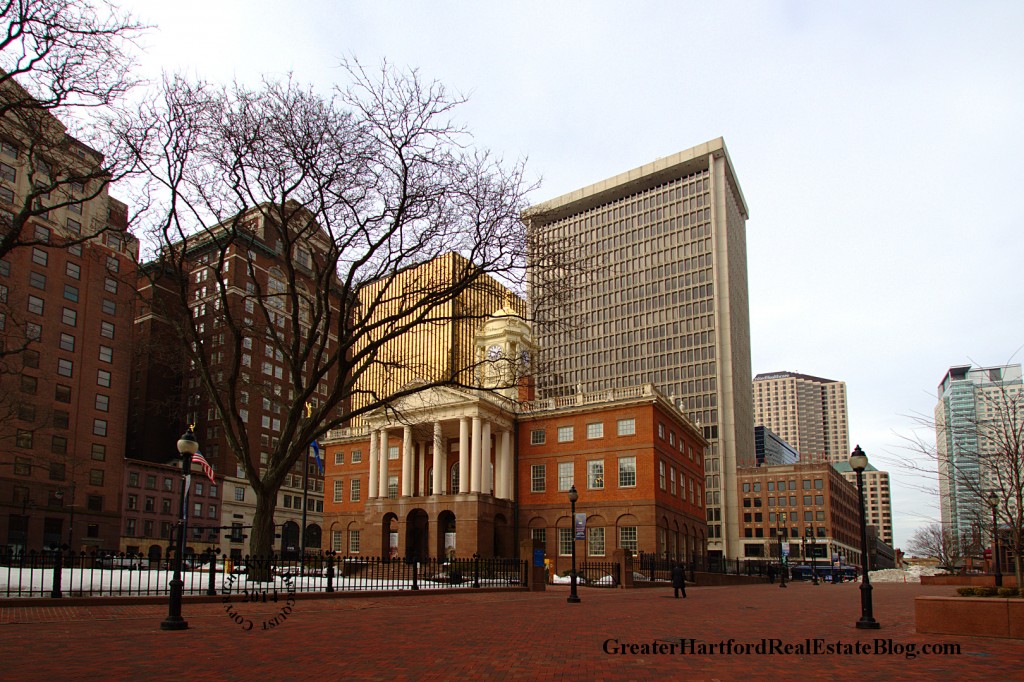On February 10th, the City of Hartford was announced as one of three American cities participating in the federal Strong Cities, Strong Communities (SC2) Challenge.
The program is a competition, looking for proposals from the general public with economic development ideas. More specifically, entrants are intended to be multidiscipline teams working to bring “new perspectives to an entrenched set of problems.” The winning team will “develop a transformative economic development plan — one that establishes Hartford as The City for Entrepreneurs.” Twelve local business people and Hartford stakeholders will serve as the judges, and prizes will be awarded. More information can be found on the competition’s website.

History of Strong Cities, Strong Communities
Strong Cities, Strong Communities began as a White House pilot initiative in July of 2011. The administration talked about cutting through red tape, working with communities to make improvements from the ground up, and partnering with local stakeholders – all with an eye on trying to revive regions that were particularly hard hit by the financial crisis. SC2 began by selecting areas of the country with an economic need, and that have struggled to develop long-term economic strategies. From there, it began implementing three primary initiatives to reach out to those cities.
First, Community Solutions Teams were deployed to seven cities, focusing on economic development projects. Federal employees sent into the field came from various federal agencies, and worked directly in support of the mayors. The pilot cities were Chester, PA; Cleveland, OH; Detroit, MI; Fresno, CA; Memphis, TN; New Orleans, LA; and Youngstown, OH.
Next, a Fellowship program was created, recruiting and training individuals to send out on assignments in different cities. The SC2 Fellows provide additional capacity to municipal governments.
Finally, an Economic Planning Challenge was launched in Hartford, Greensboro, NC and Las Vegas, NV. Inspired by the X-Prize series, it offers large cash prizes, with $900,000 in prize money to be awarded in each city for the best economic development ideas.
The SC2 Challenge in Hartford
The competition in Hartford formally kicked off this past month. Teams must register on the competition website by July 24, 2014 and proposals must be submitted by September 22, 2014. There are extensive rules and guidelines that teams need to follow as they develop their proposal. Phase one winners will be announced on November 20th and will split $100,000 in prize money.
Teams selected to continue on to the second phase of the competition have an opportunity to expand their proposal into a more detailed economic development plan. The deadline for the full plan is April 20, 2015, and participating teams will split $800,000 in prize money.
Economic Development in Hartford
The City of Hartford allocated $4.7 million to the Department of Development Services in the current fiscal year budget, of which about 25% (or approximately $1,170,000) goes towards “Economic Development” and “Planning & Urban Design.” The focus of these two efforts in the City is to oversee and implement the principles outlined in the “One City, One Plan” document that all of the neighborhoods contributed to a few years ago.
Relative to the City’s economic development budget, the $900,000 to be awarded during the SC2 Challenge is a meaningful amount. Hopefully the ideas it elicits from the public will have a lasting impact on the City and region. However, because this is the first competition of its kind, the concept of using a challenge for economic development is still an untested idea.
From a practical point of view, teams that enter the challenge don’t have much to go on. There is no historical record as to what types of proposals judges tend to prefer. Greensboro and Las Vegas are running their competitions on the same timeline as Hartford, so there is not going to be much of an opportunity to learn from their experiences either. The best guide as to what the judges will be looking for is provided on the challenge website. There are three criterion, each with many associated questions, for the judges to consider as they review submissions. Winning proposals will be focused on local issues, will be feasible to implement, and will take innovative approaches to economic development.
Our Thoughts
We really have no idea what to expect from the competition, but are excited to see what happens because fresh ideas are needed. How many teams will submit entries? Will the teams be local, or will there be groups from other parts of the country participating? We think the most interesting part of the process will be mixing and matching proposals from various teams after the first round concludes. It seems unlikely that any one team will have a monopoly on the best economic development ideas for the City and the region.
One thing we do know is that we’re going to be on the sidelines. We are not eligible to participate in the competition. The rules section of the website has a broad definition of “Interested Parties,” so we requested an opinion about our eligibility. We were ruled out because of Kyle’s position on the City’s Internal Audit Commission (perception of a competitive advantage due to superior knowledge of the City) and because of our profession as real estate agents (potential for personal gain by influencing the plan). Despite this, there will still be opportunities for everyone to be involved in the conversation.
Teams competing in the SC2 Challenge need to learn about Hartford’s strengths and challenges as they craft their proposals. By this time next year we will have some fresh ideas about directions for our City, just in time for the next budget and legislative cycles. Hopefully our City leaders will be able to incorporate the most promising suggestions from the challenge into our municipal business plan, forming a cohesive vision for Hartford in the coming years and decades.